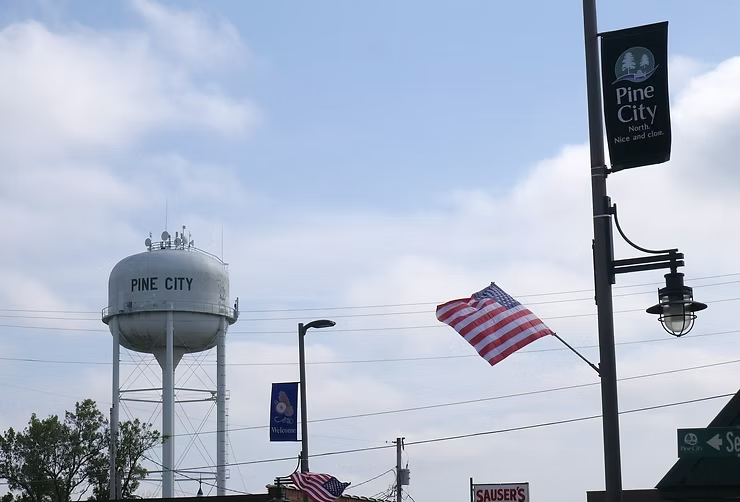Pine City School District ready for referendum vote
- wcmpnews
- Feb 9, 2024
- 3 min read
Tuesday marks the special facility referendum election for the Pine City School District, which will bring clarity to some long-term questions facing the school board.
"It's going to be a relief, one way or another," board chair James Foster said in a recent interview with Q-Media Group.
Foster and board member Cami Babolik shared information ahead of Tuesday's vote at the Pine City High School (polls will be open from 7 a.m. to 8 p.m.) for voters trying to assess the three ballot questions.
Any adult who lives within the school district is able to vote in the election, and same-day registration is available.
The first question on the ballot, Foster explained, includes the district's must-haves in order to function.
"That is the elementary school, it's the long-term facilities maintenance for seven years at the high school ..., and it's also the completion of the ALC project."

LHB rendering of ALC
The bulk of the first question involves the elementary, with $30 million earmarked for that work alone. Foster said the 1962 wing of the school is actively failing.
"We are able to save the newer portions and just give them a touching up," Babolik said.
Babolik added that a drop-off area would be added at the elementary school as well.

LHB rendering
"These are things that just have to be fixed for our students and our staff," she said. "They deserve to work in healthy and safe facilities."
Question two on the ballot is primarily focused on a special education suite at the high school.
"There has been, over the years, a dramatic explosion of special education needs," Foster said.
Foster said the highest-need students in the district often are placed in the least appropriate spaces in the building due to a lack of existing space.
The special education suite, if approved by voters, will go in the current location of the high school library.
A new media center/library would go on the second floor.
A "yes" for the second ballot question would also include work to increase cafeteria capacity by about 20 to 25 percent.

LHB rendering
The third question looks to increase gym space at the high school.
"This isn't a case of hey, we need to keep up with the Joneses," Foster said. "This is a case of everybody has more gyms, because that's what's needed in today's society."
The addition would also provide a second set of locker rooms.
The ballot questions are also contingent on each other: For questions two and three to pass, the first question must pass. However, question one can pass without the following questions passing.
"We put as many needs as we could in question one," Foster explained. "It doesn't mean questions two and three aren't needs, but what it does mean is that question two and three are things the district will survive tomorrow if they don't exist."
Foster added that the first question failing would put the district in a dire predicament. The likelihood of the elementary school not being habitable by students and teachers would be high in the next few years.
"The risk we run there is kids in portable classrooms, teachers having to teach out of portable classrooms. It would not be a good situation," he said. "And then we would still be in the same boat."
Foster said if the first question fails, the district would go back to another referendum, likely in May.
Babolik said the ALC would be a top priority if the referendum questions pass, to get things set up for the school year starting in fall of 2024.
Plans for the elementary school would take the majority of 2024, with bids going out at the end of the year and a construction timeline starting in the summer of 2025.
"It would probably be a staged project, and continue through the summer of 2026," Babolik explained.
Foster said the district would be able to keep its current facilities open until the new ones are completed.
When it comes to the financial impact of the referendum, Babolik recommended visiting the Pine School District website, which features a tax calculator to help residents determine the most accurate monthly and annual impact.
"Every small town knows the difficulty of trying to pass a referendum," Foster said. "What we're doing is a difficult task."
Foster added that the average home value within the school district is in the range of $250,000, and the average tax impact for that home value is in the $230-250 range.
The referendum has been a long time coming: Foster said the previous board began the process around 2019 with a facility study.
The board initially wanted to hold the referendum election in November of 2023, but needed more time due to the need for community feedback and a change in state deadline.
For more information from Foster and Babolik on the referendum, check out the Q-Media Group On-Demand podcast.







Comments